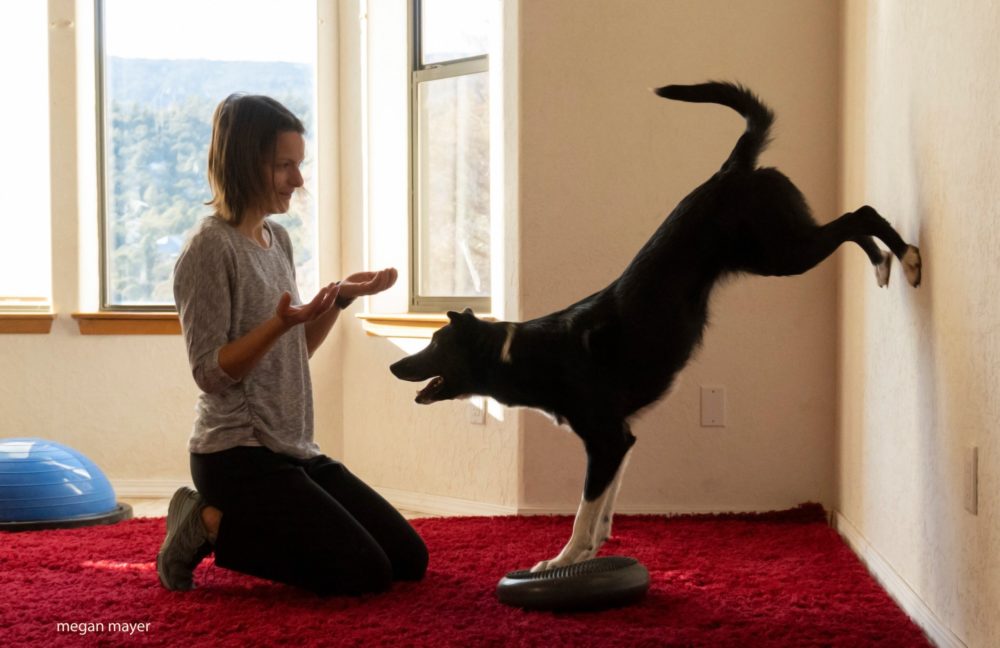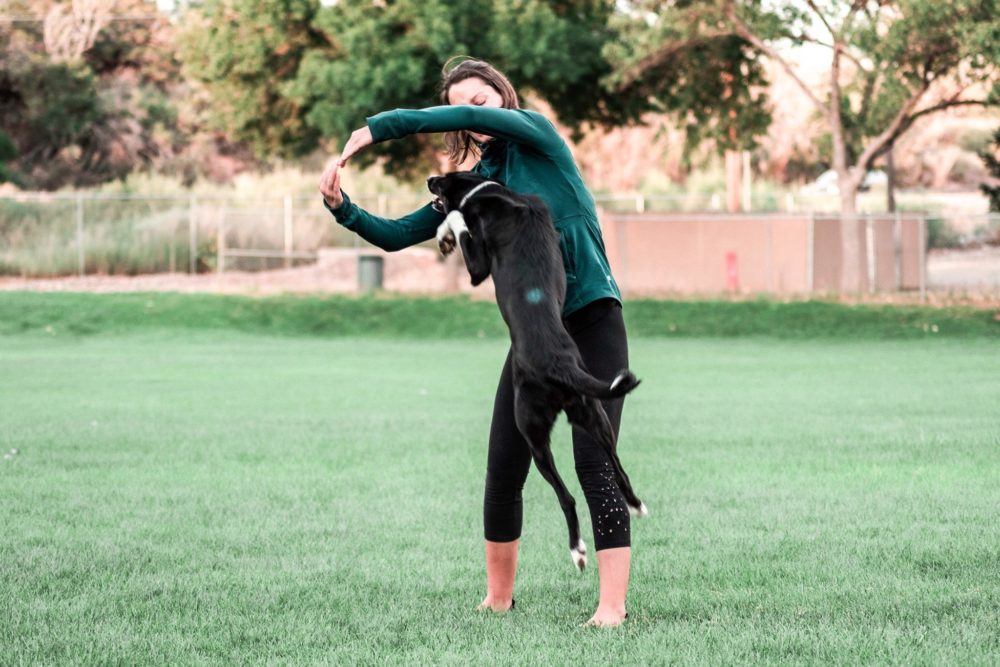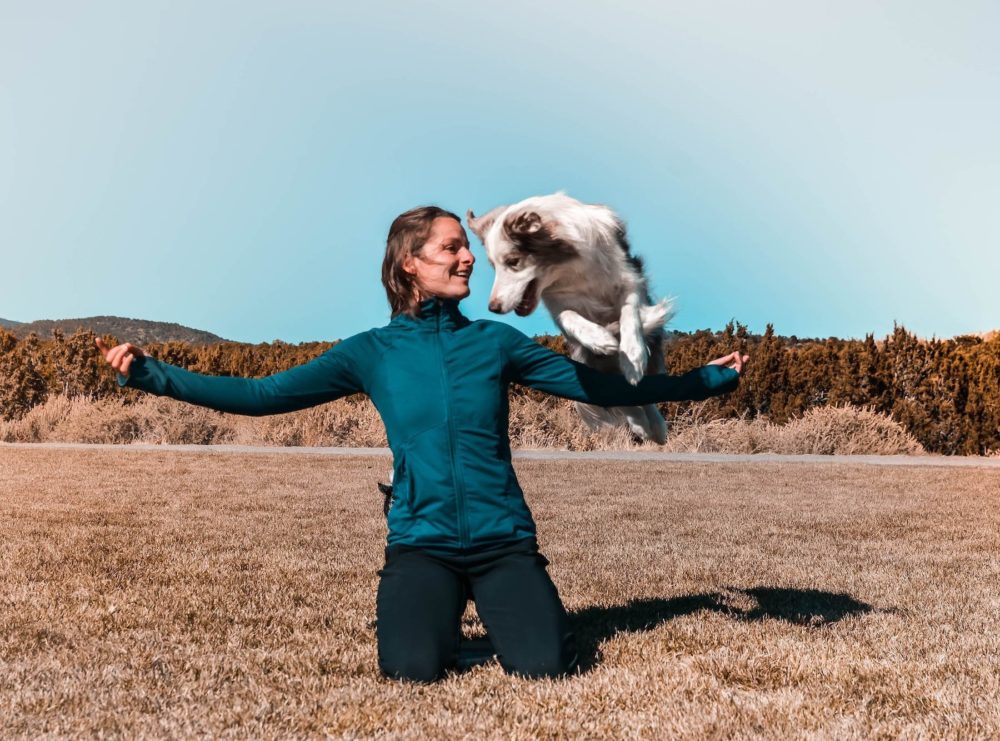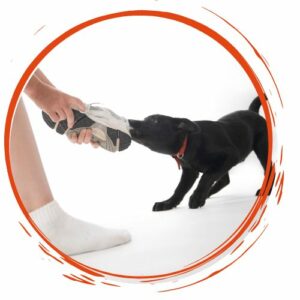How to become a dog trainer
May 25, 2020 2021-05-14 3:03How to become a dog trainer
How to become a dog trainer

My own path to being a dog trainer was anything but straightforward. I actually started out as a physicist and only through a detour become a professional dog trainer.
Most dog trainers actually don’t start out with dog training right out of high school, but rather go through different paths of life until they take a strong interest in animal behavior, training theory, body language and training techniques.
The hobby slowly evolves more and more into a full-time gig and eventually the question arises: How do you make the jump and turn into a profession?
What You Need To Have
I get email every week from hobby dog trainers who want my advice on how to become a professional.
They usually inquire about which certifications they should go after and how they can get work experience with clients.
My answer is often disappointing to them: What you need is not this or that certification council for professional dog trainers – you need skills and hands-on experience.
You cannot be a dog trainer without knowing how to train dogs. And that does not mean that you should have trained one or two dogs to sit and stay and go to their crate – it means that you should be able to train dogs to a pretty high level of skill before ever thinking about passing on that knowledge to others (for payment).
Think of it this way: An elementary school teacher needs to know a lot more about math than he or she would ever teach the children in the classroom. Only if your own knowledge is far broader than the part of it that you will need for your clients, you can be a successful and effective dog trainer.
That means that becoming a dog trainer starts out with one big thing: Developing skills and gaining experience in training your own dogs – a lot.
Before I ever taught a single basic obedience class I had spent years training my own dogs every single day. They knew dozens of tricks, did agility, played frisbee, knew the names of their toys etc.
By expanding my knowledge far beyond what I would need to train clients’ dogs, I was able to hit the ground running as a dog trainer once I made the jump into doing it professionally – because I already knew so much more than I would ever need for most client dogs.

Time For Studies
You also will need to study animal behavior as much as you can. There are many wrong pre-conceived notions about how dogs think and act. It is our responsibility as trainers to see through the jungle of myths and half-truths and offer our clients a science-based training approach – not one that’s built on old and false assumptions.
You cannot go around perpetuating the idea of dominance theory or stubborn dogs that need to learn who’s boss. Instead, professional dog trainers need in-depth theoretic knowledge on classical and operant conditioning, canine body language, animal behavior and cognition, husbandry skills, and more. Dog training is most effective if it well thought-out and clear in its approach. Your clients will appreciate you and your dog training skills much more if you are able to explain the theory behind your instructions when they ask for it.
And the better you understand the underlying dynamics of dog behavior, the better you will be able to address and fix issues that your clients have.
Even once you are a professional dog trainer, you should never be too proud to continue learning. Ask questions, try out different solutions, keep on educating yourself – this is the only way to be the best trainer you can be, and deliver the best results to your clients.
How Long Do You Have To Go To School To Be A Dog Trainer?
As you might have already guessed from the above – training is not a skill you have to acquire and then you are done, such as riding a bicycle. Rather, you should view training as a life-long journey in which you will never stop learning. Every dog you train will teach your something new, and every issue you encounter will let you learn more.
However, as a ballpark estimate you should plan to spend couple years training dogs and studying behavior before offering your services as a professional dog trainer.

Certifications Aren’t Everything
Certifications are often a big discussion point among professional dog trainers and those who want to become one.
The truth is that you will find great dog trainers with certifications, bad dog trainers without – but also good trainers without certifications and bad trainers that have them.
The certification council itself can only determine if you somewhat know your way around dog training. They are not able to assess all in-person skills or in-depth knowledge that might be required.
Some of the greatest trainers I have met do not have any certifications. I have also met trainers that had a lot of certificates, and didn’t know their way around rehabilitating reactive dogs, training easy tricks or shortcuts for great recalls.
As we already said – a lot of dog training skill comes from hands-on experience and actually working with dogs. You don’t even have to begin to think about how to become a dog trainer if you are not ready to actually spend a lot of time – training dogs.

Shadow Good Trainers
A great way to get started is to find a local trainer or two that will let you observe their work. That way you can get insight into what it’s like to be a professional dog trainer, how to schedule and work with clients and most of all – how to train a large variety of dogs.
Try a Google search for “Trainer for dogs near me” and write to the ones that seem the most in line with your own training philosophy. Nothing will let you get as good of an insight into how to become a dog trainer as witnessing one at work for a few days or weeks. Many trainers are glad to have someone tag along that can help them with small tasks such as bringing leashes and water bowls or helping clients navigate on their first day of class.
How Much Does It Cost To Become A Dog Trainer?
It is impossible to answer that question accurately. Some programs might charge you $1,000-$4,000 to make you a certified dog trainer – and at the end you are none the wiser. Studying and observing animal behavior and figuring out how to actually train well costs more time than money. If you start with online courses in combination with training your own dog, you can become a dog trainer for as little as a couple hundred dollars. Experience teaches you more than any certification program or paper that money can buy.
Is Dog Training A Good Career?
This will depend on how much you love to be around dogs and whether you like to teach people as well as their dog. If you cannot see yourself patiently and empathetically explaining dog training day after day to your clients, you should pick a different job. You need to love animals, training and never be too proud to learn from your mistakes. Experience teaches you more than any course, and not every day of dog training will be glamorous and profitable.
Training is a lifelong journey and if you are not ready to continue learning and perfecting your dog training throughout your career, pick a different one.
But if all this sounds good – then dog training might just be the ideal job for you.








